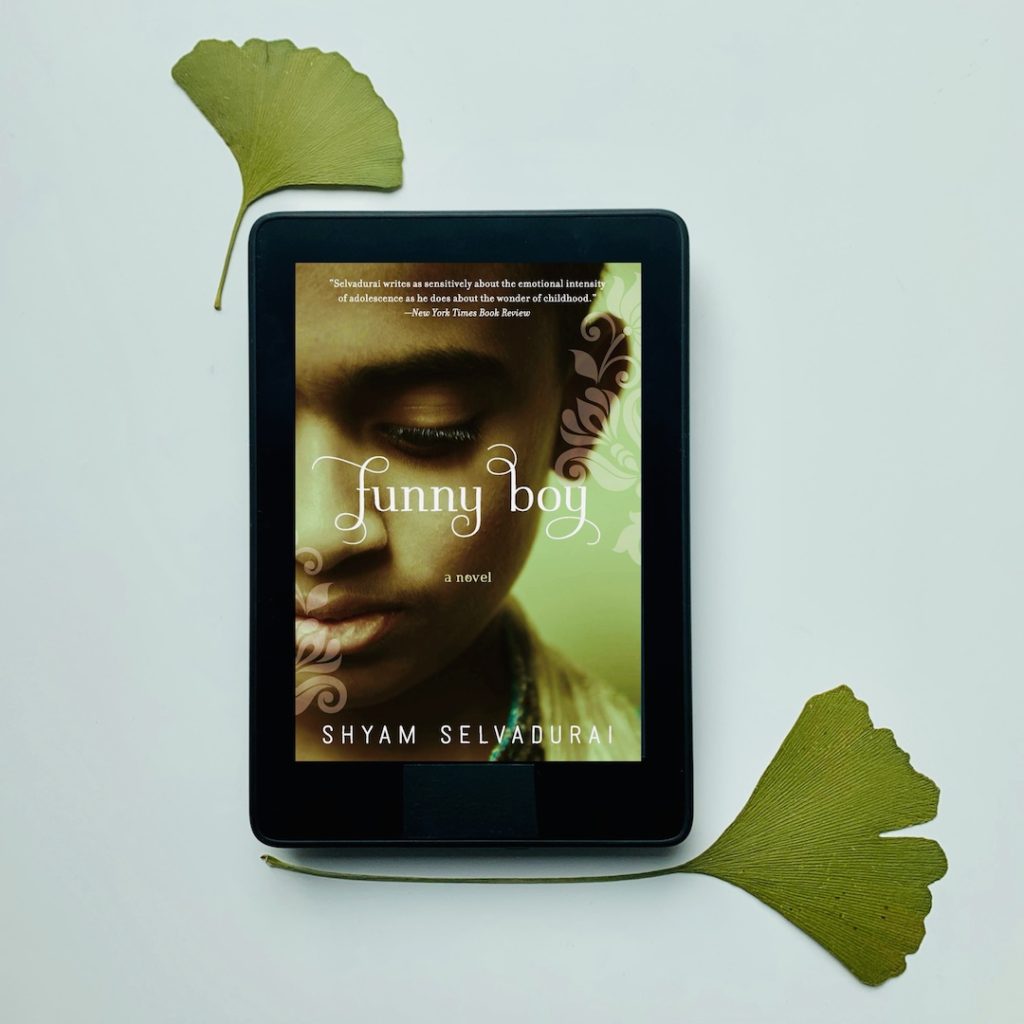Shyam Selvadurai’s Funny Boy is first and foremost a coming-of-age narrative that tells the story of Arjie, a young boy who grapples with his homosexuality and Tamil ethnicity. The novel is set on the cusp of the thirty-year Sri Lankan Civil War and contains events suggestive of the infamous historical incidents that led to the conflict, including the 1983 Black July pogrom. In many ways, the protagonist’s story mirrors that of Selvadurai’s, whose family relocated to Canada after Black July. Published in 1994, Funny Boy sheds an evocative light on marginalized groups in Sri Lanka, both from the LGBTQ+ and Tamil communities.
Sexuality
Funny Boy delicately examines sexual identity and performatively in Sri Lanka during the 1970s and 80s. Through Arjie, readers maneuver the struggles and self-discovery of adolescence, when who you are is neither seen nor acknowledged in public. In a lecture at The University of British Columbia, Selvadurai explains:
“I grew up in Sri Lanka when there was absolutely no knowledge for me about who I was, and I wanted to break the silence.”
Selvadurai pulls back the veil on the LGBTQ+ experience in Sri Lanka by explaining what the veil looks like and how it feels to wear it. Arjie’s family never addresses his sexuality in the novel, but they often discipline him to address behavior they call ‘funny.’ The term is first used when Arjie and his cousins play at their grandparents once a month, called ‘spend-the-days.’ He and his female cousins play a make-believe game called bride-bride, where Arjie assumes the role of the bride, complete with a white sari and literal veil. When the adult family members discover their game, Arjie is banned from playing because they don’t want him turning out ‘funny.’ Through these childhood moments, readers observe how silence on the subject makes young Arjie feel alienated: “It was clear to me that I had done something wrong, but what it was I couldn’t comprehend.”
As with many coming-of-age stories, the protagonist’s internal dialogue comprises the bulk of the novel’s discourse and development. By employing this mode of writing, the juxtaposition between Arjie’s internal dialogue and his family’s silence is amplified both for him and readers. As he moves into adolescence, Arjie recognizes the inevitability of he and his family’s estrangement: “I was no longer a part of my family in the same way. I now inhabited a world they didn’t understand and into which they couldn’t follow me.” It becomes increasingly apparent that his family’s silence not only broadens the gap between them and Arjie but also demonstrates that he does not fit into their world.
Ethnicity
Not only was Funny Boy a pioneer of Sri Lankan LGBTQ+ fiction at the time of its publication but was also one of the first novels to discuss communal violence on the island. The novel was released during an election year, where a governmental change led to a temporary ceasefire and a brief period of peace. In the previously mentioned lecture, Selvadurai argues, “the book kind of represented this moment.” Just as the novel sheds light on the violence between the Sinhalese and Tamil populations, the regime also called for some of the first truth and reconciliation initiatives.
Despite Funny Boy being one of the first fictional narratives about the Civil War, the novel never depicts the violence firsthand. Rather than shocking his audience, Selvadurai indirectly portrays how the conflict impacts the characters through Arjie’s perspective. As Arjie grows up, he increasingly becomes frustrated by the injustices he witnesses towards his family and friends:
“How was it that some people got to decide what was correct or not, just or unjust? It had to do with who was in charge; everything had to do with who held power and who didn’t.”
Ultimately, the novel’s power lies in its ability to portray complex socio-political issues in a nuanced and relatable way. Through a young narrator, both knowledgeable and novice readers experience the subtle notions that lead to greater ethnic tensions and reinforce dominant power structures.
For similar reading, Romesh Gunesekera’s Reef is also a coming-of-age story set in Sri Lanka. Unlike Selvadurai, Gunesekera only uses the island’s political unrest as a metaphor to discuss beach erosion and reef degradation.
STATS
Title: Funny Boy
Author: Shyam Selvadurai
Publication Year: 1994
Pages: 320

